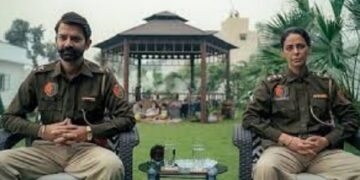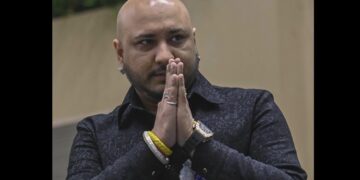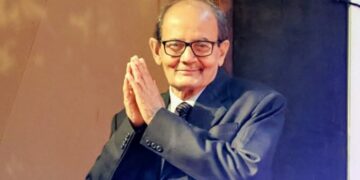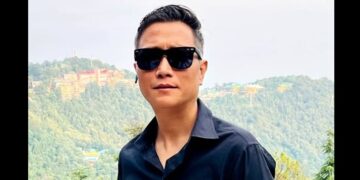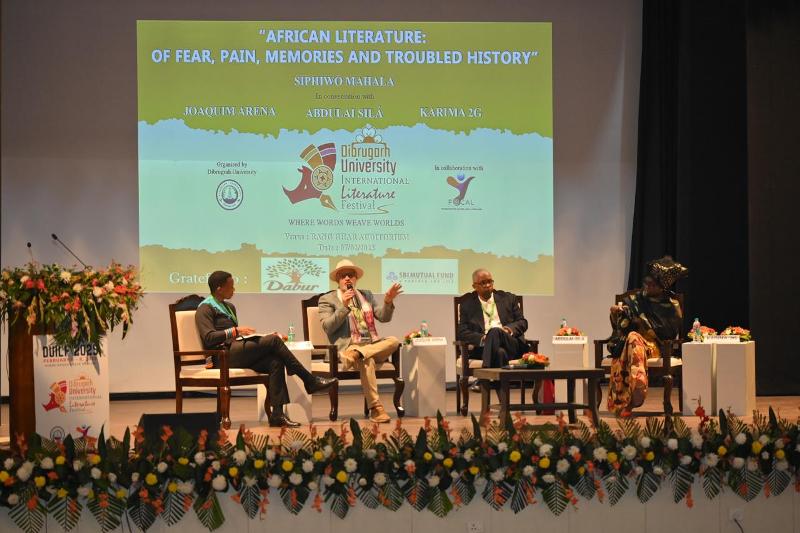Dibrugarh: African writers taking part in the International Literary Festival at Dibrugarh University have asserted that Africa as a continent is not all about pain and trouble, a view often perceived and presented by authors.
Several writers from different African countries are among 200 writers who have converged at the annual Literary Festival in Assam, which has Africa as this year’s central theme.
The African writers featured in most panels in around 50 sessions of the festival, but what intrigued them was the title of a session “African Literature: of Fear, Pain, Memories and Troubled History”.
Without taking much offence, all the panellists – Siphiwo Mahala, Joaquim Arena, Abdulai Sila, and Karima 2G – suggested renaming it to highlight the joy that emerges from the struggles of Africans.
They emphasized that while African literature or any other writings from all over the globe often portray the sufferings of the African people, they also capture moments of joy and happiness.
South African author Siphiwo Mahala questioned whether African literature is truly defined by fear, pain, and historical trauma.
“Yes, these elements exist, but there is also joy and happiness in our literature,” said the author of “The House of Truth”, urging a broader perspective on African storytelling.
Writer Joaquim Arena from Cape Verde, an island nation in West Africa, conveyed the same sentiment.
“Africa has the earliest stories of mankind,” the author of “Under Our Skin” significantly pointed out.
Expressing his resentment over the distortion of African oral folklore by European colonisation, he said, “Food is important for mankind and literature is food for the soul.”
He also questioned the conventional definition of literature that only recognizes written works, such as novels and short stories, while oral traditions of clans that explore the richness of African society and are passed down through generations are often overlooked.
Expressing his opinion on the subject, Guinea-Bissauan engineer-author Abdulai Sila said, “It is good to deal with the history full of challenges and fear but there is a necessity to put some positivity and usefulness in the works.”
He remarked that the current method of investigating African literature is wrong and it should be looked at from the perspective of a bright future instead of looking back at the troubled history from time to time.
He also stressed the need for African literature to shift its focus from materialism and corruption of the past to themes of peace and solidarity.
African-Italian singer-writer Karima 2G shared her experiences of growing up as the only Black girl in a predominantly White community.
But it was due to her early exposure to African literature that when she visited Africa for the first time ten years ago, she did not feel like a stranger.
She said through her works she wants to highlight the joy and happiness within the community and present a new perspective of the continent.
ALSO READ: Nepali writers deliberate on India-Nepal ties at literature festival in Assam
Meanwhile, the African writers expressed gratitude to the organizers – Foundation for Culture, Arts and Literature (FOCAL) and Dibrugarh University – for giving them the opportunity to highlight African literature in the festival that concluded on Saturday.
Earlier, an exhilarating dance performance by students from various African nations studying in the university enthralled the audience during the inauguration of the four-day festival.

